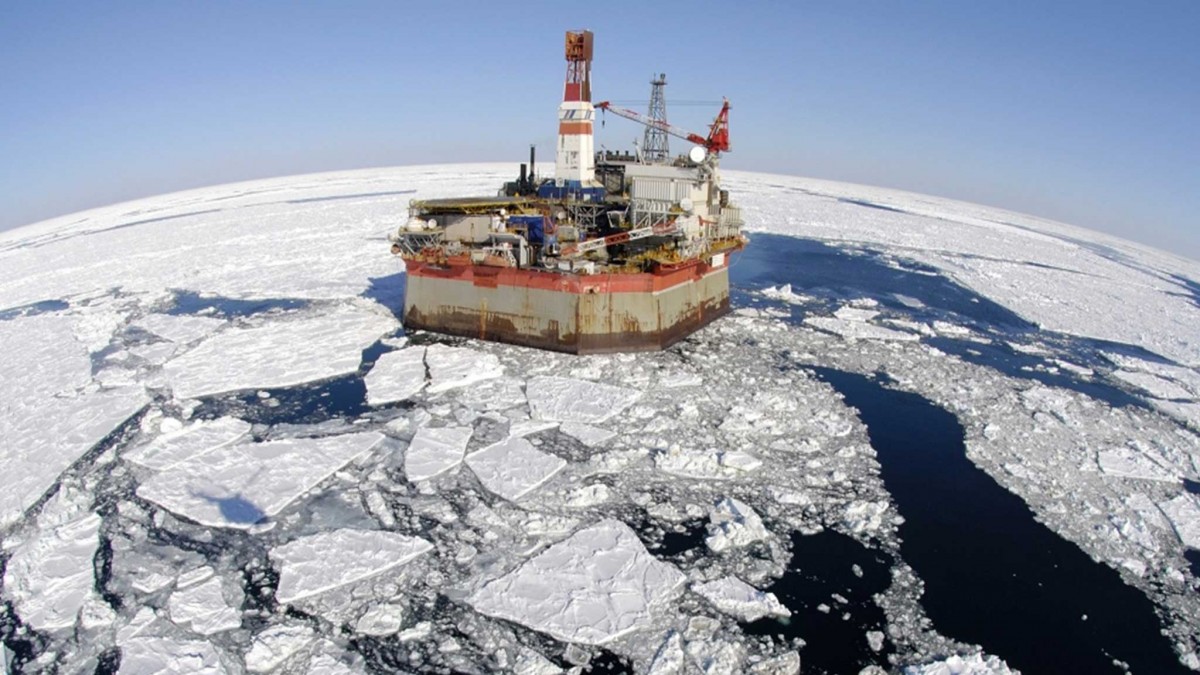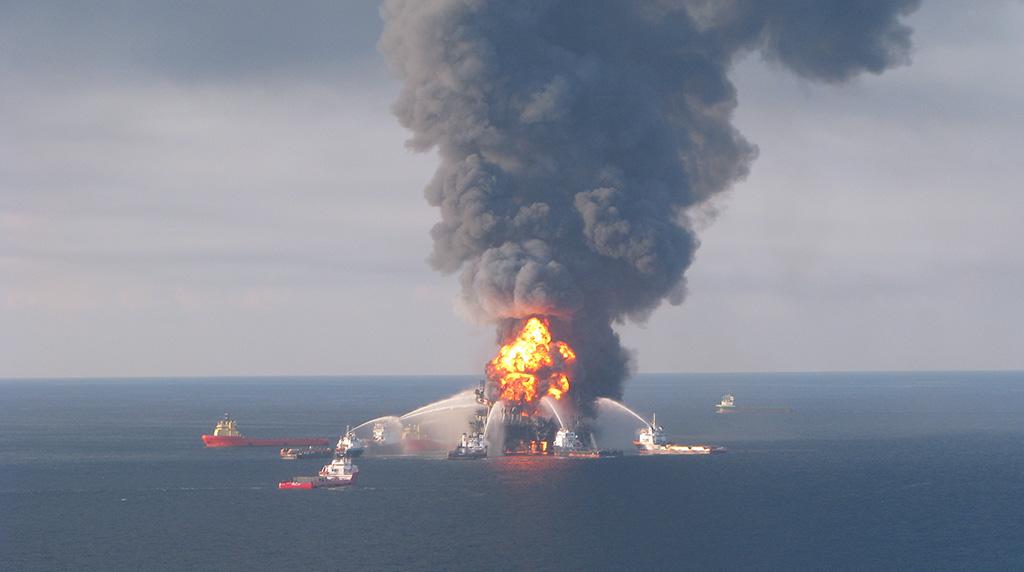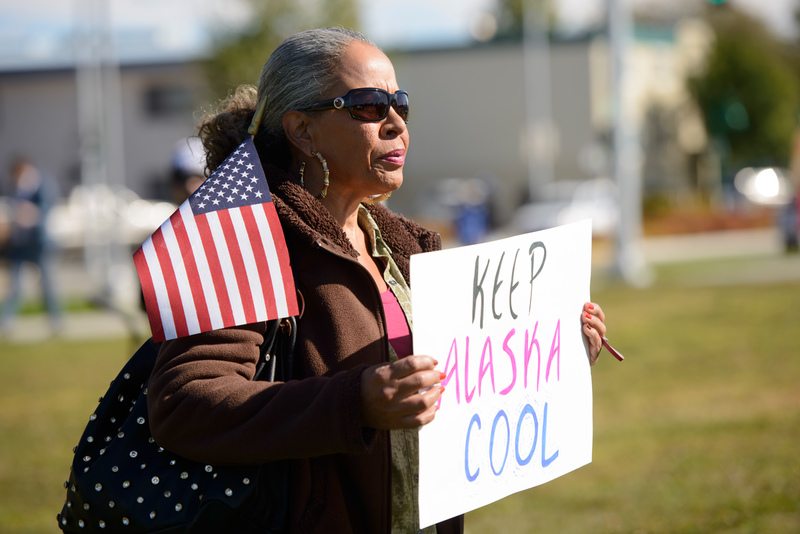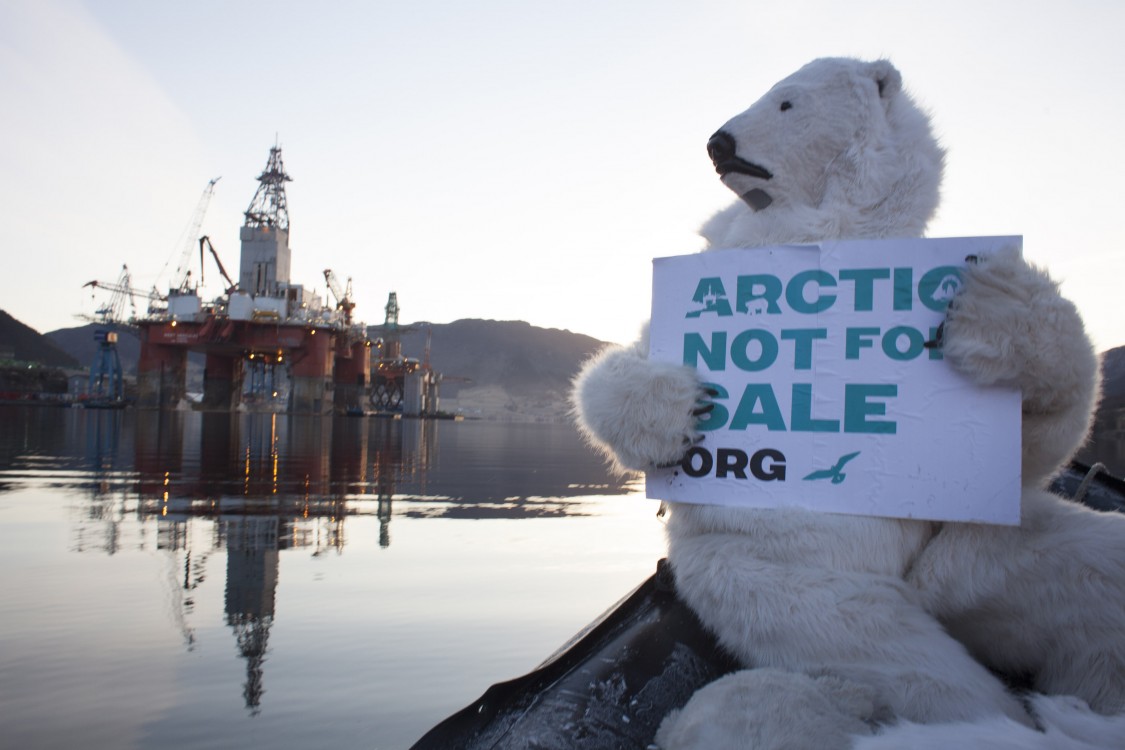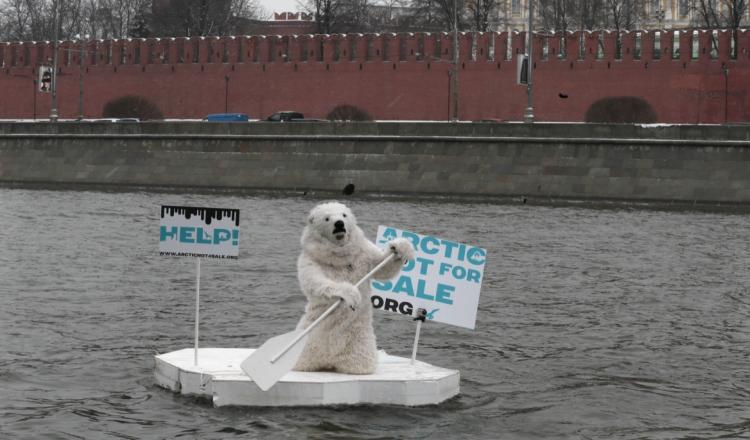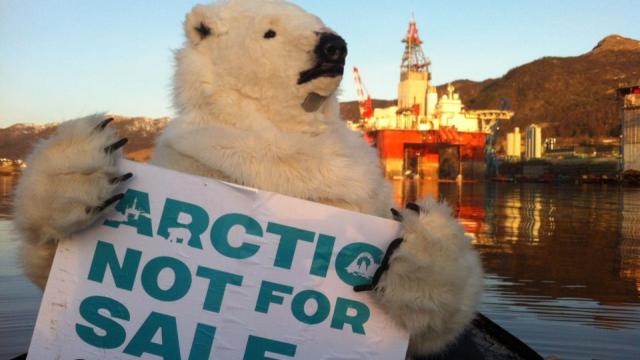
The Arctic region is warming faster than the world on average. Glaciers that have existed for more than 12 millennia are melting and seasons are becoming more unpredictable. We explained some of this in Part I of the series, which was told through the eyes of Annie Henriksen, an indigenous Sami woman who has lived in Hammerfest, the northernmost town of Norway and the whole of Europe, for over 60 years.
One impact of climate change is the intensifying storms, which are becoming even more threatening with the increasing fossil fuel extraction in the Arctic area. Hammerfest – or Hámmárfeasta, in Northern Sami – now has a booming gas industry and is the base-to-be for proposed oil drilling in the Arctic waters. The Barents Sea has been drilled since 2013, but Norway only recently opened up a record 93 blocks in this region for further licenses.
Extreme, Stormy Waters
Goliat, Norway's first oil platform extracting crude from the Barents Sea, was evacuated on Aug. 26, 2016. Henriksen, a midwife and environmental campaigner, knows workers on the rig and tells us what happened when strong winds extinguished the large flame above the rig, which was used to vent off dangerous gases, and it caused a leak. Most of the crew were evacuated, leaving a few on the control bridge and some people stuck in a lift under the water. Those who were left had to stop a disaster to save their own lives, which they managed to do.
She explains: “Afterwards they stopped work for half a year, as all the workers were protesting. They cannot speak out, but I will speak about it until I die.”
Yet despite the obvious dangers to drilling in the Arctic, Henriksen say Norway has tried to create the myth that it can drill safely. “They say they have the best technology in the world. It is false. These are the same boys who come from every other oil and gas industry. Maybe they have PhDs, but they do not have real knowledge. They are playing with nature and physics, but do not understand its dangers.”
Accidents Waiting to Happen
Norway's petroleum industry is far from alone in promoting itself as the most "high-tech" and "cutting edge," and promising that it will not cause spill disasters. BP oil baron Lord Browne made exactly the same argument for deep sea oil drilling, but instead we got the Deepwater Horizon tragedy in the Gulf of Mexico, which cost lives, ruined an ocean ecosystem and devastated the livelihoods of countless people living around the gulf. The Deepwater explosion and oil spill remains one of the worst man-made ecological crises ever.
No one can say the warnings weren't clear. And unfortunately, an oil spill in the Arctic would be even worse due to the severe conditions and its remote location. Now working for a Russian oil company, Lord Browne is again promising how safe the company's plans are to drill in the Norwegian Arctic.
Although few drilling incursions have been made in the Arctic so far, catastrophes have only been narrowly avoided. In July 2012, A Royal Dutch Shell oil ship slipped anchor in Alaska and nearly ran ashore. Later that year, Shell's oil drilling platform Kulluk did run aground, again threatening Alaska's coastline with an oil spill.
In the Atlantic Arctic this year, a sizeable iceberg nearly collided with a Canadian oil rig, the Sea Rose. And earlier this month, an iceberg twice the size of the one that sank the Titanic needed to be towed away from its collision course with a Russian Arctic oil rig.
Oil and gas drilling has ruined every other region of the world in which it has operated. Any assertion that this will not happen to the Arctic is not just irrational – it is insanely irresponsible.
Indigenous Livelihoods Under Threat
The Arctic is one of the world's final bastions of unspoiled nature. To reach Hámmárfeasta, we travelled overland through Finland and Norway, through the lands of the Sami, Europe's last indigenous peoples who straddle Finland, Norway, Sweden and Russia. We saw more reindeer than people, and vast fells, mountains and wilderness areas where the Sami rely largely on an interconnected relationship with nature, picking berries, hunting and fishing. Reindeer herding is still important here; each spring, reindeer swim out to the island of Sállir (Kvaløya in Norwegian), their summer grazing lands.
Arriving to the Arctic coast and nearing Hámmárfeasta, we notice a rapid increase in population, at least in relative terms. The town that now has 10,000 inhabitants has grown in the last hundred years from fishing, to more recently oil and gas, and also tourism. It is surrounded by breath-taking fjords.
Many of the Sami who previously lived off the land and waters have taken on jobs in the oil and gas industry. Like indigenous peoples the world over, they face a constant attack on their way of life. When pollution, industrialisation and climate change make it harder to sustain traditional livelihoods, more people join extractive industries. This expansion then increases the negative effects on the nature, creating a vicious circle of capitalism.
Resistance: From Local to Global
The Arctic region's scarce population – and the number of those people in Hámmárfeasta who are working for the oil and gas industry – creates problems for those trying to resist the petreoleum boom, Henriksen says.
Another problem is the local politicians, and those at the Norweigian state level, who are closely connected with the oil industry. In Norway, like elsewhere in the world, the short-term financial gains to be made from oil are routinely placed above the severe ecological impacts.
But the final issue Henriksen mentions is a more practical one: Compared to people resisting other extractive projects, like fracking in Britain or pipeline developments in places like Standing Rock – the Arctic is a difficult place to reach. It is far easier for activists to lock themselves to machinery in a field than in the middle of the Barents Sea.
Henriksen tells us that she protested at the launch of an oil and gas platform with two other people. “I called for people to come, but that was all that showed up.” She says more people support her than actively protest, but the livelihoods here are such that the reindeer herding is time-demanding and herders have their own battles to fight over land rights.
However, there are also examples of some bigger actions that occurred here, like in 2015 during the Paris climate negotiations, when a video of 50 protesters in Hámmárfeasta illustrating the dangers of Arctic drilling was shown to the negotiators.
Globalisation of extraction is also leading to the globalisation of resistance. Henriksen tells us about a recent indigenous conference in Alta, Norway, where she shared a stage with a Mohawk midwife who been at Standing Rock. “We highlighted how both here and there indigenous people are standing on the frontline against pollution that will impact millions,” she said.
“We spoke of how we are protecting the water in the placenta, the water in our tears, the water in the rain and the water in the sea. What is the world without water?”
In Part III of this series next week, we look at the global movement that is gathering steam to protect the fragile waters of the Arctic.
Continue reading PART 1 | PART 2 | PART 3
3 WAYS TO SHOW YOUR SUPPORT
- Log in to post comments

